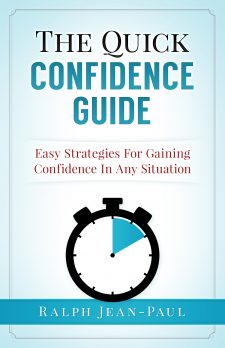There is something special about someone who can perform when the stakes are high and time is short. There’s something very heroic about Michael Jordan stealing the ball from Karl Malone, taking the ball up court, and hitting a last second shot as his defender stumbles to the floor. We love to see the dauntless doctor on television spring into action to rescue the patient whose vital signs are dropping at a rapid pace. Or the firefighter who is able to maintain a certain level of focus even though flames and smoke threaten to consume him alive.
In your life, you may not be asked to carry your team to a championship or save lives on a daily basis, but everyone experiences a situation when they must perform well under pressure. Perhaps you have a presentation to give in front of a large audience. Or maybe you have deadline after deadline that you have to meet. You may even have a very important interview or meeting that may make a major difference in your career path.
Great athletes, entertainers, leaders, and many other extraordinary performers understand that the difference between themselves and average performers is their ability to excel in high stress and high pressure conditions.
Pressure Situations
We all tend to react differently to stressful, high pressure, situations. Some are able to assess a situation and spring into action to tackle the challenge. Others may completely fold under the pressure and produce a below average performance.
The reason for this may be due to the way a person reacts to the physical effects of stressful situations.
–You breathe faster, so your body can take in more oxygen.
-Heart rate increases as your body pumps extra blood to your brain and muscles.
-Your mouth may feel dry because saliva is not produced. This is due to your digestive system being put on hold.
-Your pupils become dilated, allowing more light in and muscles tense up so you are prepared to react.
-Your liver releases sugars and fats into your bloodstream to provide a burst of energy.
The ability to control these as well as physiological and emotional responses may determine your performance.
Is Pressure a Bad Thing?
“I’m not a procrastinator, I’m a thrill seeker”, I said. “Honestly, I think I work better under pressure.” I reasoned.
“Well, next time, don’t wait until the last minute and maybe you can turn that B into an A.” said my slightly disappointed 10th grade biology teacher.
Throughout high school I developed a habit of starting projects a few days before they were due and not studying for an exam until the night before. If an assignment or test seemed easy enough, I would put it off and find something more challenging to do such as playing basketball for 5 hours or beating Street Fighter 2 on the most difficult level.
This habit showed itself in college and sometimes makes cameos in my current life. Although I used the “I worked best under pressure” argument as a way to mask my chronic procrastination, it really did help me focus in on the current task that I was dealing with.
So, is pressure a bad thing? Well, yes and no. There are some great advantages to adding pressure to a situation. One of the laws I follow when completing any task is Parkinson’s Law. Parkinson’s Law says that a task will swell to fill the time allowed to complete that task. In other words if you give yourself an hour to do something, it will take an hour to do. If you give yourself 45 minutes to do the same task, it will take 45 minutes because you will focus on only the important aspects and remove unnecessary time fillers. When the pressure is on and things have to get done, your mind and body may cooperate meet your accomplishment.
In sports, the ability to handle pressure is the gauge analysts and fans use to determine how good an athlete really is. One of the worst labels an athlete can be tagged with is the guy who chokes when the game is on the line. The greatest athletes of all time such as Tiger Woods and Michael Jordan are known for using the enormous amounts pressure that would crush an average human and turning it into an opportunity to display just how good they really are.
There are also the paramedics, musicians, firefighters whose entire profession requires being able to perform under pressure and many of them will tell you how much the pressure helps them.
On the other hand, if not handled correctly, pressure can crush a person. Psychology Today reports that many people who procrastinate frequently have lower quality in their school and work assignments. The research points to the fact that there is more pressure during the last few moments of a deadline. Pressure during a presentation can also make a person unable to communicate their ideas and thoughts correctly; resulting in a disastrous presentation.
Performing Under Pressure
Breathe….
Breathing is the most natural thing to any organism with lungs, but can be the hardest thing to do when you find yourself in a pressure position. As I mentioned earlier, in pressure situations your breath becomes faster and your heart rate increases so that blood and oxygen can get be pumped into your brain. Taking deep, controlled breathes, will help you perform with clarity in those high stress situations.
Taking breathes that are long and slow gives the body the ability to absorb more of the inhaled oxygen. More oxygen to the brain is a good thing. There are several deep breathing techniques that you can practice that will be beneficial to your health and will also come in handy in pressure situations. Here are just a few.
1. Counting Breaths -This exercise requires you to sit in a comfortable position with your spine straight, head forward, and eyes closed. Breathe in naturally and count “one” when you exhale. Breathe in again naturally and then count “two” as you exhale again and continue on until you reach a five count. Do this for about 10 minutes and if done correctly, you should come out of it with a clearer head due to a change in brain activity.
2. Chest and Abdominal Breathing-This exercise will help you become more aware of your breathing. Start by lying on your back and placing one hand on your abdominal and one hand on your chest. Take a deep breath through your nostrils with the focus on keeping your chest still and filling your belly with air. This will help you learn to breathe through your diaphragm.
3. Short Breaths -This is a quick breathing technique that begins with you inhaling three short breaths through the nostrils and then exhaling smoothly through the mouth. Ten to twelve breaths in 2-3 minutes should be enough gain the full benefits of this exercise.
Get Out Of Your Own Head
Over analyzing a situation is a sure fire way to fail in that situation. One of the reasons people choke under pressure is because they think too much about actions that they would usually do unconsciously. Over thinking about situations is a very common event. If left unchecked, thinking too much can breed worry, self-consciousness, and stress. When the pressure in on, involuntary actions usually take control making it difficult to focus on your goal. Have you ever watched someone who was extremely nervous give a speech? If they are comfortable in any way, their body will reflect their uneasiness. The nervousness might reveal itself by way of an anxious fidget, body shifting, or quivering voice. The speaker may have a message they are trying to present but find it difficult effectively relay that message
A few years ago I visited a social anxiety group. I don’t have social anxiety but was interested in the condition and wanted to learn more about it for an article I was preparing to write. I contacted the group organizer and told him of my plan to visit their next meeting. He reluctantly agreed to let me visit the group with the condition that I would not try to dominate the open conversation. I’m not sure how he knew that I was a talker, but I assured him that I wanted to attend just to observe and to get more insight into the lives of people who live with social anxiety.
My expectation for the meeting was to sit and listen while a group of people with mice like personalities struggled to speak up about their inability to speak up. To my surprise, the exact opposite occurred. The people there were extremely interesting and open to talk about their conditions. They were also very friendly to me and asked me questions about myself and my writing in order to include me in their conversation.
One of the constant themes about their struggle with social anxiety was the battle to get out of their own minds in social situations. They talked about how they would fight as their minds would create possible negative outcomes and insecurities. Their thoughts could sometimes paralyze them into
This same habit of thinking too much affects our ability to perform well under pressure. Here are a few ways to get out of your own head and into the moment.
1. Be aware-Use your senses to stay aware of your surroundings. Learn to take in everything that you see, hear, touch, and smell. We are able to hear all the time but listening is a conscious thing.
2. Be open– Let those things that your senses are taking in affect you. Do let them overwhelm you but allow them touch you in some way. Be open to what is around you and how they might help you handle your situation.
3. React accordingly-Once you are aware of your surrounding and your senses are on high alert, react accordingly. Reacting to a situation is a sign that you are in that moment not in your head.
“The first requisite for success is to develop the ability to focus and apply your mental and physical energies to the problem at hand“ – Thomas Edison
Focus and Concentration
Being able to stay focused is a highly effective skill to have in any situation but comes in especially handy in pressure situations. Once you are able to get and stay out of your own head, staying focused to the task at hand will become much easier. I one of my next posts will be Stay Focused. I will go into detail the most effective ways to stay focused in different scenarios. For now, here are some ways to stay focused under while under pressure.
1. Block out any other distractions-One of the fist things you may have learned in 2nd grade was how to clear your desk when you had to do class work. I always liked to keep everything in arms reach of me so my desk top was covered with markers, crayons, and drawings of ninjas. I was perfectly fine with my mess but I was always told to clean my desk before working. Turns out the teachers knew what they were talking about.
In most situations, the best way to focus is to block out all distractions. In pressure situations, blocking out distractions is even more important and more difficult. The best way to block out distractions is to remove them. If there is anything that may divert your attention, it has to go. With some practice, you will become better at first identifying the distractions and then learning to cancel them out. In the event you are not able to remove the distraction, follow the next two steps.
2. Goal!!– Ultimately, focus is just zeroing in on a goal so that the target is clear. During high pressure situations, the goal may become blurry due to the demand required. Your goal should be clearly defined before the pressure situation.
3. Go-to Statement– At certain times, your brain is not your friend. It will sometimes entertain thoughts of failure and quitting when you are facing adversity. Have a statement or affirmation that you can repeat that will help your mind refocus when your thoughts begin to stray in the wrong direction.
One of my favorite examples of this is in the movie Men of Honor. When Carl Brasher (Cuba Gooding Jr.) was training to be a Navy Diver, one of his tests was to put together a flange while under water. While he was at the bottom of an ice cold lake for hours, he kept repeating to himself, “My name is Carl Brasher, I am a navy diver.” The go-to statement should reaffirm and remind us of our goal all the while keeping us focused.
“If you stay ready you never have to get ready.” -Will Smith
Create Déjà Vu
Creating déjà means preparing yourself for a future pressure situation so that you can perform better. If you are an athlete, then your workouts and practices should be a simulation of the game. I had a psychology professor in college that offered her students the opportunity to come in the night before a exam and study at the desk where they were going to be taking the test. She knew that studying in the same way, and atmosphere where the actual test would take place, would relieve some stress because you would be familiar with environment and circumstance.
In his extraordinary book Talent Is Overrated, Geoff Colvin presents the idea of deliberate practice. Deliberate practice is the way of preparing with the intention of improving a specific skill. In the book he states, “The great performers isolate remarkably specific aspects of what they do and focus on just those things until they’re improved; then it’s on to the next aspect”. Colvin uses the example that the way Tiger Woods practices his swing is much different than your weekend golfer. While your average golfer will hit a ball, observe the results, then make any adjustment for the next swing, Woods practices with the intention of perfecting one part of his swing or game.
This makes perfect sense to me. I have been applying this technique for the past several years to some of my projects. Not only do you have the subconscious confidence of being able to accomplish the task because you’ve been there before, but you are also able to calm down and breathe easier too.
Sooner or later you will be in a pressure situation. If you are unable to handle it correctly, it may cost you a promotion, job, or an opportunity to experience new things and meet new people. Practice these techniques and you will soon begin to see how well you can perform under pressure.

 Subscribe for free today and get a FREE copy of my ebook The Path 2 Success. Begin your path today!
Subscribe for free today and get a FREE copy of my ebook The Path 2 Success. Begin your path today!










